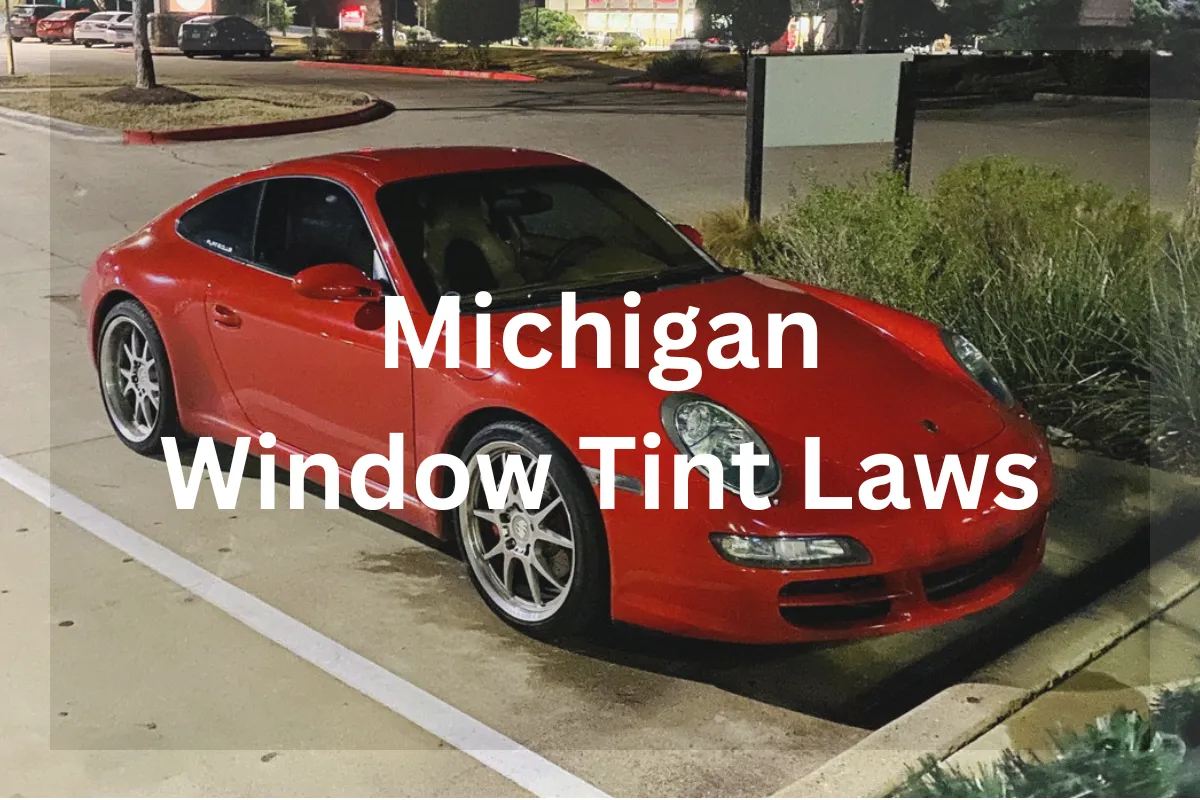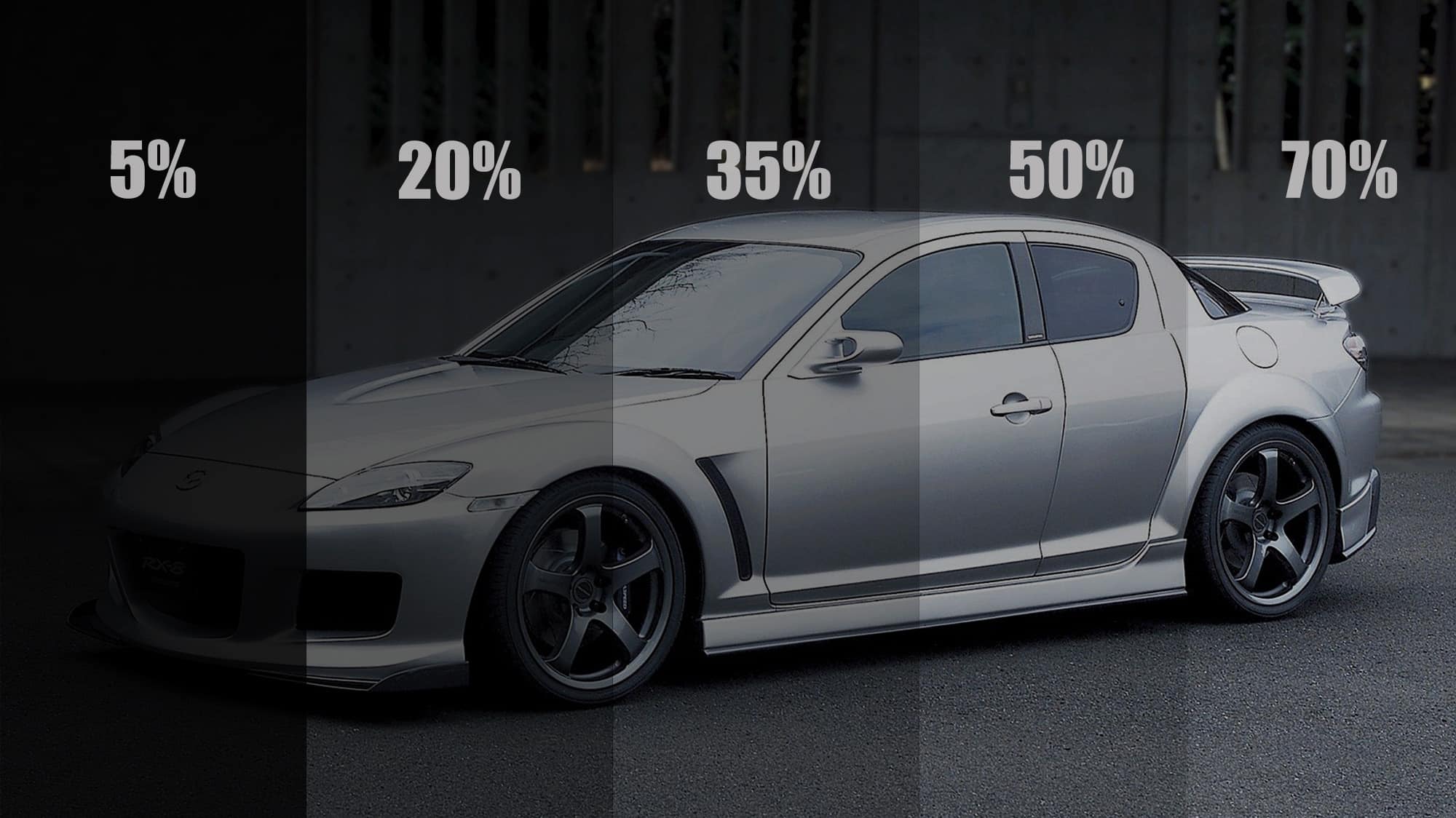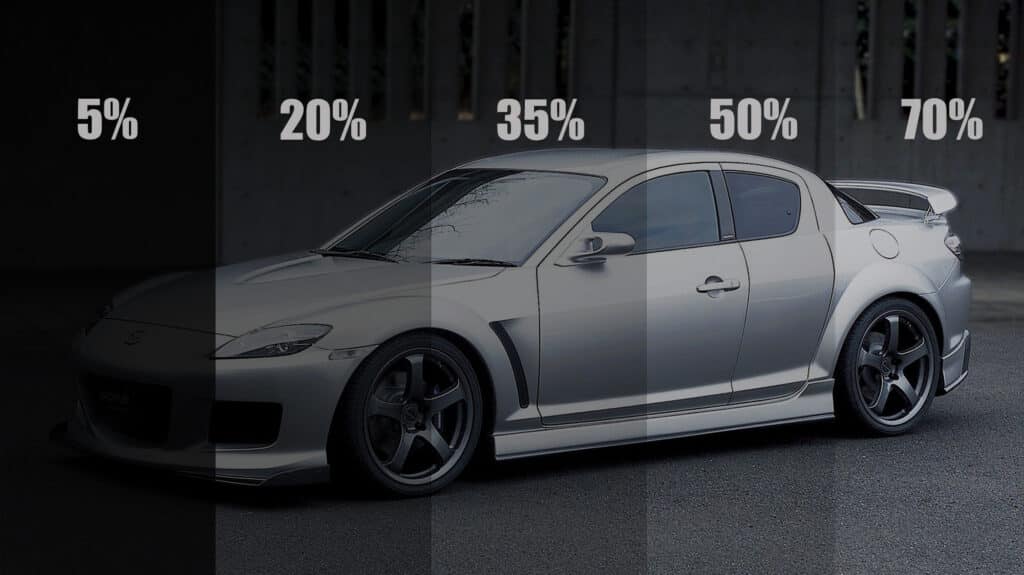Michigan Window Tint Laws: A Comprehensive Guide To Staying Legal
Understanding window tint laws in Michigan is crucial for drivers who want to customize their vehicles while staying within the legal boundaries. Window tinting offers numerous benefits, including enhanced privacy, reduced glare, and improved climate control. However, Michigan has specific regulations that dictate how much tint is allowed on various windows. Violating these laws can result in fines and other penalties, so it’s essential to familiarize yourself with the rules before applying tint to your car. Whether you're a resident or just passing through, knowing "whats the legal tint in michigan" will save you from potential legal issues.
Michigan's window tint laws are designed to balance safety and personalization. The regulations are based on the percentage of light allowed to pass through the tinted windows, known as the Visible Light Transmission (VLT) percentage. This percentage varies depending on the type of vehicle and the specific window being tinted. For example, the front side windows have different requirements than the rear windows, ensuring that drivers maintain optimal visibility while driving. As such, it's vital to understand these nuances to avoid any legal complications.
While Michigan allows some degree of customization, exceeding the permitted VLT can lead to legal trouble. Law enforcement officers are trained to identify illegal tints, and they can issue citations accordingly. Moreover, the state requires that tinted windows have a certification label affixed to them, indicating compliance with state regulations. This label is a key element in proving that your tint meets the "whats the legal tint in michigan" standards. Understanding these requirements will help you avoid unnecessary fines and ensure your vehicle remains roadworthy.
Read also:Stay Ahead Of The Road Mastering Udot Traffic Utah For A Smoother Journey
What Are the Basic Window Tint Laws in Michigan?
Michigan’s window tint laws are straightforward but specific. The front side windows must allow a minimum VLT of 70%, meaning they must let in at least 70% of visible light. This requirement ensures that drivers have clear visibility, which is critical for safe driving. On the other hand, the rear side windows and the back windshield can have any level of tint, as long as the vehicle is equipped with functioning side mirrors. These regulations highlight the importance of maintaining visibility for the driver while allowing some flexibility for the rear windows.
Why Is It Important to Know Whats the Legal Tint in Michigan?
Knowing "whats the legal tint in michigan" is not just about avoiding fines; it's also about ensuring your safety and the safety of others on the road. Excessive tint can impair visibility, especially during low-light conditions or inclement weather. This can lead to accidents, endangering both the driver and passengers. Additionally, having illegal tint can result in points on your driving record, which can affect your insurance rates. By staying informed about the regulations, you can enjoy the benefits of tinted windows without compromising safety or legality.
Can You Get Pulled Over for Illegal Window Tint in Michigan?
Absolutely. Law enforcement officers in Michigan are authorized to stop vehicles suspected of having illegal window tint. During a traffic stop, the officer may inspect the windows to determine if they comply with the state's VLT requirements. If the tint is found to be non-compliant, the driver may receive a citation and be required to have the tint removed or adjusted to meet legal standards. It's worth noting that officers often use specialized tools to measure the VLT, making it difficult to contest the findings. Therefore, it's always best to ensure your tint complies with "whats the legal tint in michigan" before hitting the road.
What Are the Consequences of Illegal Window Tint?
Violating Michigan's window tint laws can lead to several consequences, including fines and points on your driving record. The exact amount of the fine varies depending on the severity of the violation, but it can range from $100 to $250 per offense. Additionally, if you accumulate too many points on your record, your insurance premiums may increase, or your license could even be suspended. These penalties underscore the importance of adhering to the state's regulations. By understanding "whats the legal tint in michigan," you can avoid these costly and inconvenient repercussions.
Does Michigan Require Certification Labels for Tinted Windows?
Yes, Michigan mandates that all tinted windows have a certification label affixed to them. This label serves as proof that the tint was applied by a certified professional and meets the state's VLT requirements. The label typically includes information such as the manufacturer's name, the tint's VLT percentage, and the installer's details. If your vehicle is pulled over and the officer cannot find a valid certification label, you may be cited for illegal tint. Therefore, it's crucial to ensure that your tint installer provides and properly affixes this label to avoid any issues.
How Do You Know If Your Tint Is Legal in Michigan?
There are several ways to verify if your window tint complies with Michigan's laws. First, check the certification label on your tinted windows. This label should clearly indicate the VLT percentage, which should match the state's requirements. If you're unsure or the label is missing, consider visiting a professional tint installer for an inspection. They can measure the VLT and confirm whether your tint is within the legal limits. By taking these steps, you can ensure that your vehicle meets "whats the legal tint in michigan" standards and avoid potential legal issues.
Read also:Exploring The Rich Tapestry Of Carlson Creek Winery A Journey Through Flavor And Tradition
What Are the Benefits of Legal Window Tint?
Legal window tint offers numerous benefits beyond mere aesthetics. It provides enhanced privacy, shielding you and your passengers from prying eyes. Additionally, tinted windows reduce glare, making it easier to see during bright sunlight or while driving at night. They also help regulate the temperature inside the vehicle, keeping it cooler in the summer and warmer in the winter. Furthermore, quality tint can block harmful UV rays, protecting your skin and the interior of your car from sun damage. By adhering to "whats the legal tint in michigan," you can enjoy all these advantages without worrying about legal consequences.
Can You Tint Your Own Windows in Michigan?
While it's technically possible to tint your own windows, it's not recommended unless you have professional experience. DIY tinting can lead to uneven application, bubbles, or improper VLT percentages, all of which can result in legal issues. Professional installers are trained to apply tint according to the manufacturer's specifications and ensure compliance with state regulations. They also provide certification labels, which are essential for proving legality. If you're considering tinting your windows, it's best to consult a certified professional to ensure your tint meets "whats the legal tint in michigan" standards.
What Should You Do If You Receive a Citation for Illegal Tint?
If you receive a citation for illegal window tint, the first step is to assess the situation. Check the VLT of your tinted windows and compare it to Michigan's requirements. If the tint is indeed non-compliant, you'll need to have it adjusted or removed. Many tint shops offer services to bring your windows into compliance, often at a reduced cost if you show the citation. Once the issue is resolved, you can return to the issuing officer or the court to have the citation dismissed. Remember, addressing the problem promptly can prevent further penalties and ensure your vehicle remains legal.
Conclusion: Staying Compliant with Michigan's Window Tint Laws
In conclusion, understanding "whats the legal tint in michigan" is essential for any driver who wants to customize their vehicle without running afoul of the law. By familiarizing yourself with the state's VLT requirements and ensuring your tint is professionally applied with proper certification, you can enjoy the benefits of tinted windows while staying safe and legal. Whether you're a long-time resident or a visitor, adhering to these regulations will help you avoid unnecessary fines and ensure a smooth driving experience in Michigan.
Table of Contents
- Basic Window Tint Laws in Michigan
- Why Is It Important to Know Whats the Legal Tint in Michigan?
- Can You Get Pulled Over for Illegal Window Tint in Michigan?
- What Are the Consequences of Illegal Window Tint?
- Does Michigan Require Certification Labels for Tinted Windows?
- How Do You Know If Your Tint Is Legal in Michigan?
- What Are the Benefits of Legal Window Tint?
- Can You Tint Your Own Windows in Michigan?
- What Should You Do If You Receive a Citation for Illegal Tint?
- Conclusion: Staying Compliant with Michigan's Window Tint Laws


